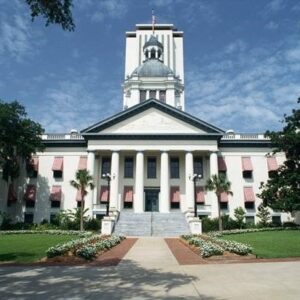Major insurance bills missing
 Lawmakers are back in Tallahassee this week for the last of six weeks of committee meetings leading into the regular 60-day legislative session that begins on January 11. The full legislature was in town the week before Thanksgiving and passed a series of COVID-19 vaccine and mask measures, but what’s still missing are bills to address further needed insurance consumer protection reforms.
Lawmakers are back in Tallahassee this week for the last of six weeks of committee meetings leading into the regular 60-day legislative session that begins on January 11. The full legislature was in town the week before Thanksgiving and passed a series of COVID-19 vaccine and mask measures, but what’s still missing are bills to address further needed insurance consumer protection reforms.
Of course, it’s still too early to determine the entire scope of the legislature’s proposed actions, as bills are still being filed and will be up until the deadline of noon on January 11. We are carefully looking at every bill and so far, we don’t see any bills of concern or impact. Specifically, we’re awaiting bills that would:
- Tweak the 2019 Assignment of Benefits (AOB) law (HB 7065) to address “directions to pay” agreements by contractors;
- Update the language in last spring’s SB 76 law to satisfy current federal court challenges;
- Limit Citizens Property Insurance policyholders in vetoing take-outs of their policies to the private market; and
- Lower the insurance industry loss threshold to tap into the more affordable Florida Catastrophe Fund for its reinsurance needs
In the week before Thanksgiving, the full Florida Legislature met in special session to pass what Governor DeSantis described upon signing into law as the strongest legislation of its kind against a federal mandate on employer vaccine requirements and mask mandates. It also prohibits local governments and educational institutions from requiring vaccines and masks, and prohibits forced vaccinations during any public health emergency. The state is also leaving OSHA and will create its own workplace health and safety overview authority. You can read more about the package of four bills.
 The Governor also made news last week by proposing a temporary halt to collection of state gasoline taxes that would amount to 25-cents per gallon to help counter rising inflation. The “gas tax holiday” would save up to $200 over a six-month period for the average Florida family, according to the Governor. Gas prices last week hit a six-year high in the Sunshine State.
The Governor also made news last week by proposing a temporary halt to collection of state gasoline taxes that would amount to 25-cents per gallon to help counter rising inflation. The “gas tax holiday” would save up to $200 over a six-month period for the average Florida family, according to the Governor. Gas prices last week hit a six-year high in the Sunshine State.
While a gas tax holiday would cost the state a bit over $1 billion in revenue, the Governor said it would not impact ongoing transportation and water infrastructure projects, in part because of federal COVID-19 stimulus money received and the expected $19+ billion coming Florida’s way from the recently passed $1 trillion federal Infrastructure Investment and Jobs Act.
The Act, referred to as the Build Back Better Plan, also exempts from federal tax liability state grants going to homeowners who protect their homes from windstorms, earthquakes, and wildfires, and provides a 30% tax credit for qualified wildfire mitigation spending. It also includes money for NOAA to improve its extreme weather forecasting ability, money for FEMA to help local governments adopt and implement hazard resistant codes and standards, and forgives the National Flood Insurance Program’s current $20.5 billion debt.
LMA Newsletter of 11-29-21

